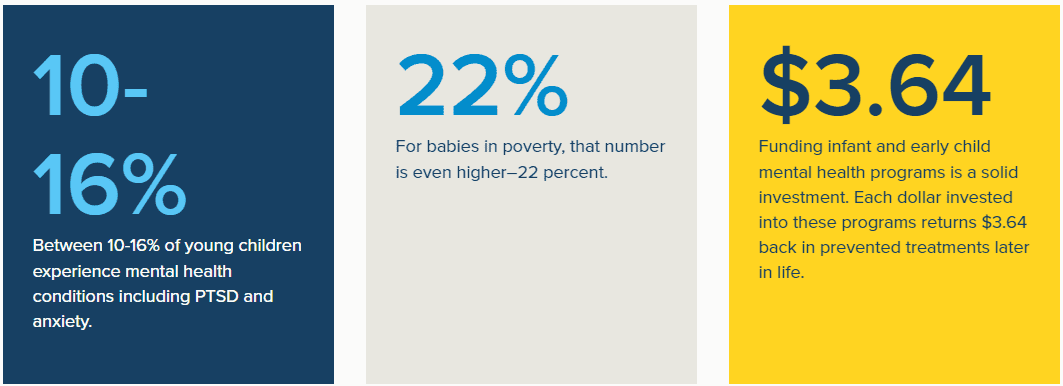A new article published by EdSurge explores how the first three years of life are foundational for future outcomes and development, particularly for those who lived through the pandemic and the stressors that it caused. ZERO TO THREE’s Senior Manager of Infant and Early Childhood Mental Health (IECMH) Meghan Schmelzer and other IECMH experts explain the urgency of addressing the mental health and well-being of infants and young children early.
What is infant and early childhood mental health?
Despite trending conversations about our emotional well-being, the mental health of our youngest citizens is largely ignored or misunderstood. Mental health is formed in our earliest days, even before birth. As a baby grows through infancy, toddlerhood and the preschool years, each experience—positive or negative—becomes a building block for their future wellness.
Babies remember. They just remember it differently. We remember in our brains, and they remember in their bodies.
— Meghan Schmelzer
Emerging evidence reveals an uptick in developmental delays and challenging behaviors in children belonging to the so-called “COVID generation.” Born during or shortly before the pandemic, many of these children are talking, walking and interacting later and less frequently. They’re also more prone to certain behaviors, like outbursts, physical aggression and separation anxiety. Intervening early is key, experts say, because of what we know about early childhood development. And while kids are remarkably resilient, they’re also vulnerable, Shmelzer says. An estimated 10 to 16 percent of young kids experience mental health issues. For kids in poverty, the rate is more like 22 percent.
IECMH Policies Make a Difference
Schmelzer notes that there’s an important distinction between offering mental health consultation and actually having sufficient resources to meet demand. She previously was involved in infant mental health consultation in Michigan, where the program was technically statewide but had nowhere near enough position to provide services universally.
That’s where ZERO TO THREE steps in. Our team works to support states’ advancement of IECMH policies across the country to improve access to developmentally appropriate mental health promotion, prevention, and treatment services. Our resources highlight innovative approaches to policies that ensure our youngest children and their families have the support they need.
The IECMH Policy Team at ZERO TO THREE provides in-depth technical assistance to policy leaders, advances federal perinatal and IECMH policy, and develops resources highlighting innovative policies and initiatives that impact infants, toddlers and families.




